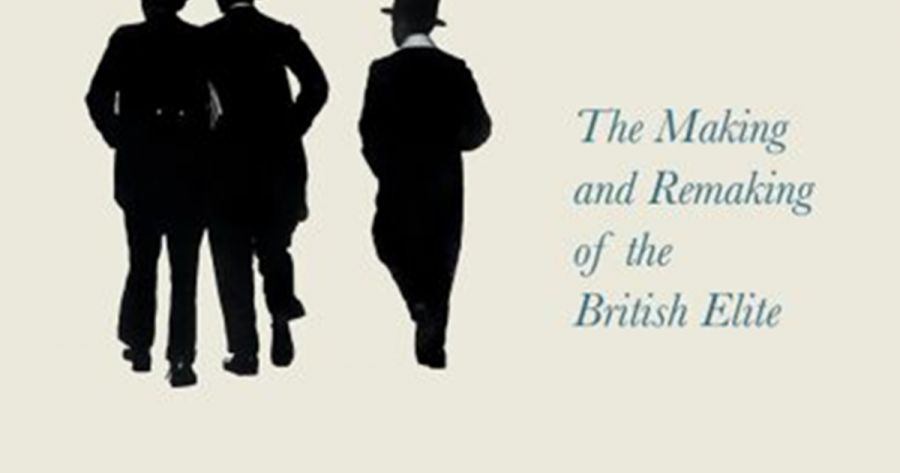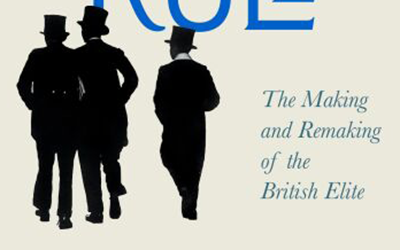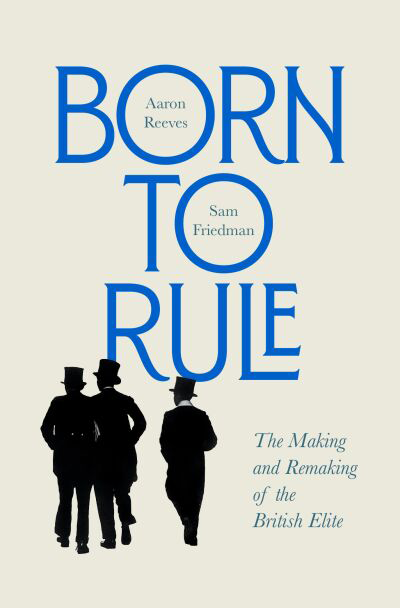
- Free Article: No
- Contents Category: United Kingdom
- Review Article: Yes
- Article Title: The Thing
- Article Subtitle: The propulsive power of the British Establishment
- Online Only: No
- Custom Highlight Text:
Within the English language ‘elite’ is one of those French loan words comfortable enough in its new habitat to have dropped its accent in many publications (though not this magazine). Adopted substantially following France’s reckoning with its own élites after 1789, it joined other Gallic descriptors of high society such as ‘le bon ton’ and still retains a residual whiff of suspicious foreign origins. Crusading journalist William Cobbett preferred the robust old English term ‘the Thing’ to describe the interlocking networks of social, economic, and political privilege that misgoverned Britain in the aftermath of revolution. Usage of ‘elite’ only soared after World War II, and especially from the 1950s, when cognate terms such as ‘the Establishment’ also became common coin. In its adjectival form in the United Kingdom, as in Australia, ‘elite’ retains some positive connotations. Generally, we are comfortable with the notion of élite athletes, as even the most cursory follower of the recent Olympic Games will have noted. As an adjective applied to other areas of life such as education and politics, or worse still as a noun, it has become a kind of slur.
- Featured Image (400px * 250px):

- Alt Tag (Featured Image): Gordon Pentland reviews ‘Born to Rule: The making and remaking of the British elite’ by Aaron Reeves and Sam Friedman
- Book 1 Title: Born to Rule
- Book 1 Subtitle: The making and remaking of the British elite
- Book 1 Biblio: Harvard University Press, US$29.95 hb, 317 pp
- Book 1 Cover Small (400 x 600):

- Book 1 Cover (800 x 1200):

This collective disavowal of élite status is the starting point for Reeves and Friedman’s timely and important book. They sketch the political, cultural, and economic context for their subject with skill. The accelerating pace of economic inequalities in the United Kingdom since the 1970s has been tracked by ballooning rhetoric about the élite that works the levers of power to its own advantage. The left, the right, and the centre can all denounce their own versions of this phenomenon. Similar dynamics are apparent in other Western nations. As the volume of speech and writing about the élite has grown, however, it has become ever more challenging to pin down exactly who qualifies for membership.
Reeves and Friedman offer a disarmingly straightforward attempt to reinvest this now dangerously broad term with some sociological precision. The empirical bedrock of their efforts is the data on more than one hundred thousand individuals who have appeared since 1897 in the pages of Who’s Who, the biographical dictionary of the ‘noteworthy and influential’. The authors, joint editors of the British Journal of Sociology, embrace the irony that their own élite status as white, male professors at Oxford and the London School of Economics grants them the cultural capital to broker privileged access to this closely guarded dataset.
The great strength of this book is the diversity of angles from which the authors come at their subject. The Who’s Who data is used in conjunction with more than two hundred qualitative interviews with living entrants. The datasets scoured range from probate records to the music choices made on Desert Island Discs, a long-running radio program, whose guests select eight records, a book, and a luxury to soothe their exiles. It is this blending of the qualitative and the quantitative that lends credibility to some of the authors’ bigger claims.
The first third of the book is, for a historian like me, reassuringly qualitative. Chapter Two largely uses interview transcripts to access élite discomfort with the notion of being élite. It explores what the authors call the ‘cosplaying of ordinariness’, a practice through which their subjects navigate and soften their own status. The recent general election campaign in the United Kingdom furnished countless further examples of this strategy in action. Rishi Sunak’s ‘About Me’ section of his website is three hundred words of cloying discomfort with élite privilege. During the election night coverage, the semi-professional Boris Johnson groupie Nadine Dorries was widely pilloried for her efforts to portray Alexander Boris de Pfeffel Johnson as a product of meritocratic Britain, an Eton scholarship boy who has ‘known real hardship’. The list could go on.
My favourite chapter deals with another aspect of this performance of ordinariness: how members of the élite describe their cultural preferences. Who’s Who recreational profiles and the data from Desert Island Discs are used to present modern élites as ‘cultural chameleons’. The shift from unrepentant public interest in Wagner, antique-collecting, and hunting to embrace Beyoncé, family, and football has been pronounced. Residual élitism remains in the efforts to name only critically acclaimed popular music as a preference, but the direction of travel is clear. The authors are surely onto something in attributing this affected effort to blend into the background to the élite’s vanishing sense of moral legitimacy.
The second third of the book is more quantitively focused. The authors fold in their statistical materials to illuminate and enumerate the mechanisms and processes of élite reproduction. The ‘totalising, shapeshifting, and often hidden qualities of wealth’ are presented as essential to understanding how élites (and not just wealth élites) perpetuate themselves. A small number of schools and an even smaller number of universities have unique ‘propulsive’ power. Not much of this material will shock, though it is welcome to have it presented with statistical ballast and sometimes with numerical precision.
The really big contribution of the book lies in the authors’ deft ability to weave all of these different factors and types of evidence together to offer nuanced and suggestive conclusions rather than the kind of simple Manichaean ones that furnish current political and populist rhetorics. This is exemplified in the chapter devoted to ‘How Elites Think’. This marshals all of the authors’ data to make the case for the élite as a whole having distinctive political preferences, but also to offer more fine-grained analysis of divisions within Britain’s top 0.05 per cent. Most predictable of all are the attitudes of the wealth élite, who privilege education and economic growth as public policy goals but don’t think they should be taxed more to pay for their delivery.
Otherwise, the authors identify three broad ideological groups within the élite: a redistributive left, an essentially centrist ‘New Labour Left’, and an ‘Establishment Right’. In a sense, therefore, anguished protests against élites from across the political spectrum, from Jeremy Corbyn’s ‘vested interests’ to Nigel Farage’s ‘woke political class’ and everything in between, are equally right and equally wrong. For Reeves and Friedman, partisan positions around cultural questions of gender and race cohere around either end of this spectrum and they divide its large centre group. The final two chapters offer a somewhat detached and provisional analysis of how an élite diversified along gender and racial lines might (or might not) change the content and orientation of élite politics and political action.
Overall, the achievement here is a uniquely textured and detailed deep dive into a sociologically concrete élite. No doubt there will be quibbles about how accurately Who’s Who maps onto the holders of cultural, political, and economic power, or about whether performative interview answers and survey responses can really get us into their authentic mentalities. As a first resort, the quibblers should consult the careful methodological appendix. The authors’ central aim is to persuade the reader that, because the élite matters in real political, economic, and cultural terms, identifying it, reconstructing its attitudes, and interrogating its mechanisms of reproduction with sociological precision also matters. They succeed admirably. Throughout, the language of the book is that of careful, measured, and objective social scientists with a splash of wry, knowing humour. The conclusion, however, opens out into a more passionate register as the authors make the case for rejecting the language of meritocracy as a sufficient remedy and for embracing wholesale reform of the institutions of élite reproduction. In this sense, the book is also a gauntlet, thrown at the feet of the least privately educated cabinet and parliament in the United Kingdom’s political history.


Comments powered by CComment